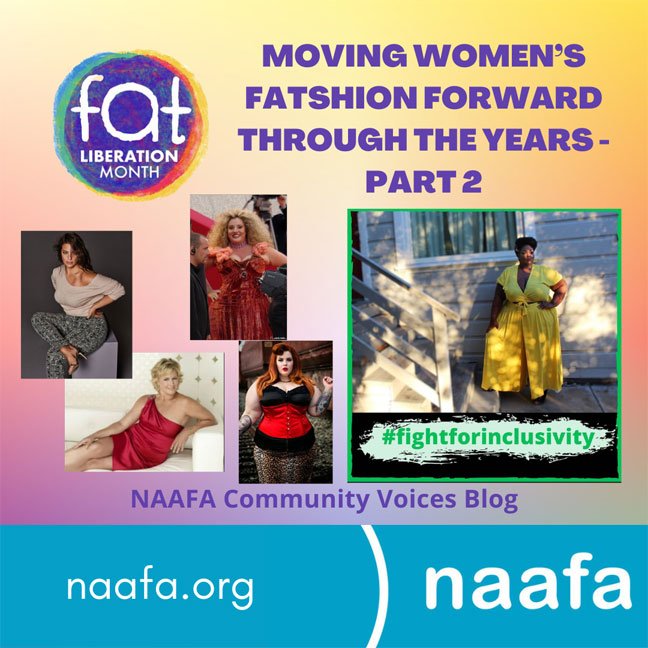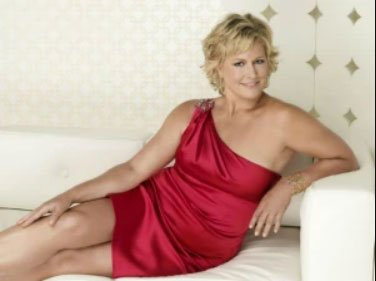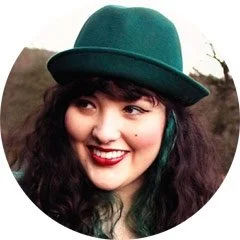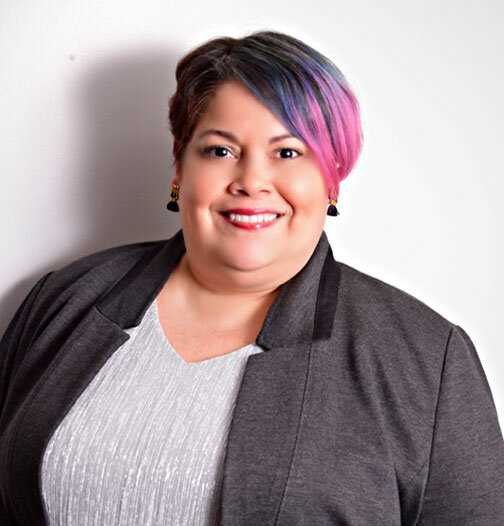Moving Women’s Fatshion Forward Through The Years - Part 2
By Darliene Howell and Marcy Cruz
In 1989, size-16 Emme Aronson started plus size modeling and became one of People Magazine’s 50 Most Beautiful People in 1994 and a second time in 1999. She is known as the world’s first mainstream plus size supermodel, paving the way for those who came after her in the plus size modeling industry. In 1998, she was the first plus size model to be a spokesperson for Revlon and went on to launch a clothing line for QVC called Me BY EMME in sizes 2 to 26. In 2015, Emme created the initiative “Fashion Without Limits” at her alma mater Syracuse University as a way to teach design students how to create better plus size clothing by using larger mannequins and crafting better patterns that more accurately fit the plus size body, instead of just grading up from a smaller size as most brands do. Students receive mentorship and the opportunity to receive an award for the Best Design.
Ashley Graham (size 14/16) was discovered at the age of 12 while shopping at a mall in Omaha, Nebraska and was signed to Wilhelmina Models in 2001, one of the major modeling agencies in the US. Since then, she has graced mainstream magazine covers such as Vogue, Marie Claire, and Cosmopolitan, as well as launching her own lingerie line with Canadian plus size clothing retailer Addition Elle. In 2016, she graced the cover of Sports Illustrated’s Swim Issue, becoming the first plus size model to do so.
However, while size 14 and 16 models were being recognized as plus size and being used by brands frequently, larger bodies were still not being seen front and center. That is until 2006, when size-26 model Velvet D'Amour became the first super-sized model to walk the Paris runway for John Galliano’s prêt-à-porter showing entitled "Everybody is Beautiful", in conjunction with French Vogue. D’Amour used her platform to later launch Volup2 Magazine, where she photographs and spotlights bodies of all sizes with an artistic perspective.
Throughout the years, NAAFA has continued to hold their annual fashion show, giving conference attendees the opportunity to walk the runway in beautiful designs, which further pushed the message that all bodies are beautiful and deserve to be seen. This also offers conference participants a way to boost their confidence in themselves and feel beautiful. We have a recap of the 2008 fashion show and a preview for the 2010 fashion show available for viewing.
NAAFA wasn’t the only one trying to make an impact on the runway. In 2009, Gwen DeVoe of DeVoe Signature Events launched Full Figured Fashion Week as a way to provide a “mainstream” platform for plus size fashion. It was Gwen’s desire to give an outlet to plus size models and fashion designers a space to rival NY Fashion Week, which often excluded them. Videos from Ashley Stewart, Big Girls United, Candi Apple Couture, Qrystal Frazier Designs and Agape Goddess Wear from the 2009 FFF Week Finale Runway Showcase can be seen on Youtube.
In 2010, 23-yr-old blogger Gabi Gregg won a contest run by MTV to become their first-ever TJ (official MTV Twitter correspondent). Gregg was one of the first bloggers to go mainstream who was not afraid to use the term “fat” and even coined the term “fatkini” when wearing a two piece bikini. She went on to create a swimsuit line with Swimsuits For All and launch her own clothing line with fellow blogger Nicolette Mason called Premme in 2017. Gregg was one of the lead influencers in the mainstream fashion industry that normalized the use of the word “fat” in fashion.
In 2011, size-22 model Tess Holliday entered a Torrid model search and was chosen. Since Tess started modeling, she has been the first Curve model above a size-20 and the first model over size-18 to model Monif Clarke's clothing line and after signing with Milk Model Management in 2015, she became become the largest plus size model of her size and height to be signed to a mainstream modeling agency. Holliday went on to create the Eff Your Beauty Standards movement in 2013 on Instagram to tell women that their size doesn’t dictate their worth and you can love your body at any size.
According to Harper's Bazaar, a fashion blogger is "someone that's primarily known for their website that has a point of view, a certain taste and unique way of presenting and documenting fashion - whether visual or written." Where a fashion influencer doesn't have their own platform outside of social media.(1) Instagram became the social media platform with the highest reach for fashion influencers but TikTok can't be far behind. Fashion influencers have a large number of followers and are paid to pose with specific products on their social media channels.(2) But fatshion influencers can use their platforms to again push fatshion forward by talking to the brands they work for to be more size inclusive (making size 24+).
Among the bloggers and influencers, continuing to push fatshion forward, NAAFA’s fashion show at their conferences have spanned the years since 1972.
The 2019 NAAFA Conference was NAAFA’s 50th anniversary celebration and our fashion show was a hit, featuring the many designers that make fashions just for us! Popular fashion blogger and writer Marcy Cruz (now NAAFA’s Director of Fashion Industry Relations) hosted the show and longtime NAAFA supporter and social media fave Saucye West joined a group of volunteer models of various sizes on the runway. You can see just a few of the fashions and participant models in the following video.
The fashion industry has come a long way since Lena Bryant launched her business in 1904. 2019’s NY Fashion Week had more plus size models on the runway than it ever has. According to reports from the Huffington Post, 68 plus size models walked a total of 19 shows, up from the previous season when 37 models walked in 12 shows. However, 41 of the 68 were all cast in just three shows: Tommy Hilfiger, Chromat and Christian Siriano. The rest of the castings came in solo or small groups, the highest being Kate Spade New York, Tadashi Shoji, Area and Burnett, which cast three plus size models each with Tess Holliday possibly the largest model there.
A step forward? Possibly. But we have to remember: Representation and visibility matter. There’s a long way to go as many designers don’t make plus size clothing and their sample size is between a size 2 and 4. While plus sizes start at a size 14, we are seeing more mainstream brands offer up to a size 18. However, the average American woman now wears between a size 18 and 20 so that’s just scratching the surface on making clothing more accessible.
Women above a size 20, and more so those over a size 24, are the ones still being left behind during a time when the term “size inclusive” has become a popular buzzword.
Fashion can also be a form of activism, where we can lend our voices to the movement, pushing back on the idea that plus sizes stop at a size 24. Influencers such as Saucye West with her #FightforInclusivity initiative and Casey Snow who uses their platform to talk to the issues within the fashion industry for those 24+, bring more awareness to this problem and keep pushing for the narrative to change. Designers such as Bertha Pearl of Size Queen Clothing, Claire Doody of Copper Union Apparel, Marina Hayes of Peridot Robes, Janelle Lowe of Love Your Peaches and so many others offer custom clothing and size ranges up to 7X/8X. These individuals and so many others give us hope that the industry will continue to evolve and hopefully one day truly see everyone and not just a certain size bracket that falls short. Until then, we have to keep having fashion shows, supporting the designers who design for us and making sure our voices are being heard.
What Is The Difference Between A Fashion Influencer And Blogger?, Ella Alexander, https://www.harpersbazaararabia.com/culture/what-is-the-difference-between-a-fashion-influencer-and-blogger
Darliene Howell has worked directly with NAAFA since her retirement in 2004; first as the recording secretary to the Board of Directors in 2007, was the Chair of the Board in 2015. In 2020, she elected to step down as Chair of the Board and remains Administrative Director. She has been active in fat community 20+ years.
Marcy Cruz is an award-winning writer/author, educator and activist with 20 years of experience in the plus size fashion industry. She is also signed to State Management as an extended-sizes (4X+) fit model and is the content creator of the blog Fearlessly Just Me.
OPINION DISCLAIMER: Any views or opinions stated in the NAAFA Community Voices Blog are personal and belong solely to the blog author. They do not represent the views or opinions of NAAFA or the people, institutions or organizations that the owner may or may not be associated with in professional or personal capacity, unless explicitly stated. Any views or opinions are not intended to malign any religion, ethnic group, club, organization, company, or individual.









